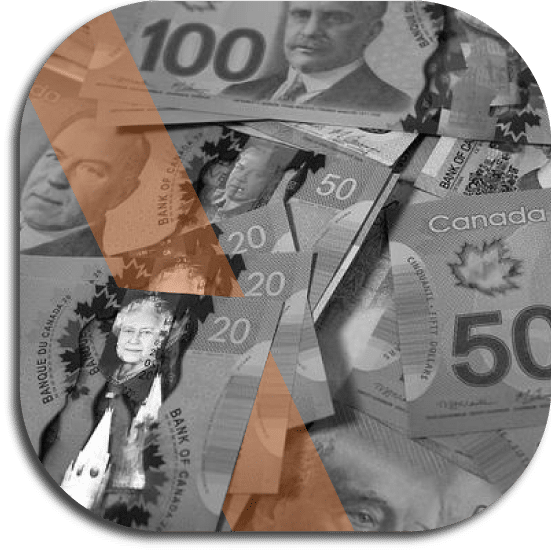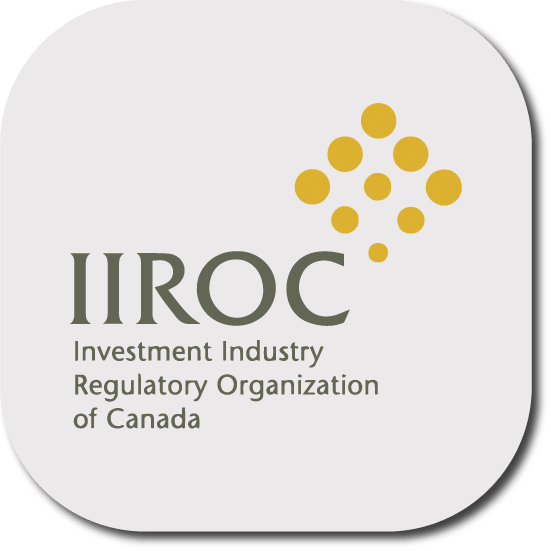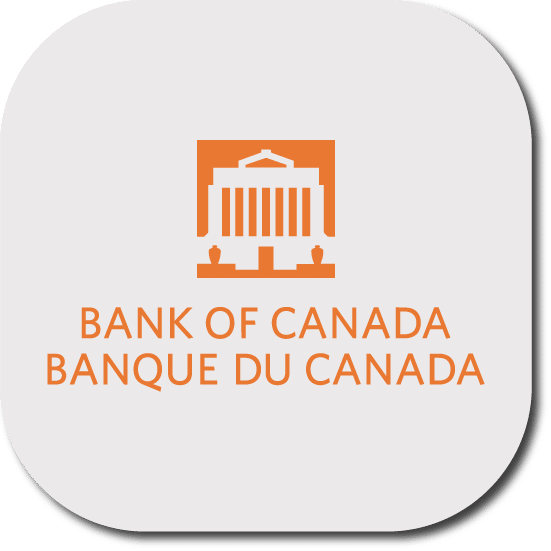Table of content
Being located in the North American region, it is no surprise that Canada is home to one of the largest, best-regulated Forex markets in the region. It seems like everything about this country is the major – economy, population, GDP, and the overall territory.
Canada stretches over 9,984,670 square kilometers, and its population reaches 38,005,238 people. The local economy is both well-developed, sustainable, and stable – the country’s GDP stands at 1.971 trillion USD, and the GDP per capita averages at 52 144 USD, which brings the country to be the one with 13th highest Human Development Index.
When it comes to the success of the local Forex market, one can attribute it to a variety of different factors, however, the main ones include the government’s commitment to efficient regulation, as well population’s general enthusiasm about the field, and the strong, diverse economy.
In the guide below we will have a close examination of the regulatory mechanisms in place in Canada, as well as the opportunities that the Canadian national economy has to offer to the Forex traders. Moreover, we will discuss the payment methods and trading software that one can access in the country, and provide you with the full list of best Forex brokers in Canada.
Stay tuned and read our guide until the end to ensure that you possess all the information to make an informed decision.
List of best online trading platforms in Canada
Seeking a brokerage to join in a country with an efficient regulatory mechanism in place is much easier than in those with little to no regulation of the market. Nevertheless, one can still feel overwhelmed by the variety of options to choose from.
For that reason, we have decided to create our own shortlist of only the best of the best among the brokers in Canada. Moreover, in that list, we included all the relevant information that a trader might seek in choosing a brokerage to sign up with – such as the success rates of its trades, trading instruments available, a variety of trading tools that it has to offer, and more.
Why is the Canadian national economy so stable?
There are many drivers of the success of the national economy of this country. Smooth transition from the agricultural to an industrialized economy, coupled with the deep economic integration with the United States have both made Canada into what it is right now – the 10th largest economy in the world, with the average household income well exceeding the standards of the OECD.
Any Forex trader that is currently thinking about starting to trade in Canada will be pleased to know that this country is a major player when it comes to international trade and home to the world’s ninth-largest stock exchange – the Toronto Stock Exchange.
On top of exporting large volumes of oil and gas, Canada is also mining and exporting steel, aluminum, copper, nickel, gold, zinc, uranium, cobalt, coal, iron ore, cadmium, platinoids, and molybdenum. Moreover, the manufacture of automobiles and aeronautics is also very developed in Canada.
As you can already tell, the country’s economy is quite diverse, and the opportunities for Forex trading in Canada are plentiful.
Canadian national currency – should you trade it?
Yet another good news for Forex enthusiasts with a specific interest in trading currency pairs is the opportunities for profit that come with trading the national currency of Canada. The Canadian dollar (CAD) is one of the 8 main currencies in Forex trading, as well as the sixth most popular reserve currency.
But what makes the CAD so popular? The Canadian economy, although without a doubt a large one, is definitely not among the world’s most major economic players, yet the extreme popularity of this national currency is undeniable.
A big factor making the CAD so attractive, and a “safe haven” currency for many is the country’s richness in natural resources discussed earlier. With Canada possessing 13% of the world’s overall oil reserves, succeeded only by Venezuela and Saudi Arabia, it is no surprise that the currency of the country is so strong.
On top of that, the efficiency of the fiscal policies issued by the Bank of Canada coupled with the overall stability of the country’s economic growth makes up for a perfect success recipe that is behind the attractiveness of the CAD as a currency offered by the Canadian Forex brokers in 2023.
How is the Canadian Forex market regulated?
As it is the case with many other successful Forex markets all over the world, the main reason behind the growth of the FX market in Canada is the government’s dedication to the overarching safety of the field. This notion is especially visible when it comes to the way in which the Canadian Forex market regulated: while most of the countries have a maximum of two regulatory bodies, this one has 15 different ones.
It seems that the government authorities in Canada have managed to achieve the ultimate task when it comes to the local regulatory environment – ensuring the safety of every party that participates in the FX trading, all while not impeding the market’s growth. In the sections below we will have a closer look at how this has been achieved, and what are the main regulatory entities behind it.
Canadian regulatory bodies – Who are they?
The easy explanation for the variety of the Forex regulatory bodies is the fact that each of the provinces has its own, individual entity in place. While those entities can function independent to some degree, in order to avoid any complications or destabilization of the field, Canada has two overarching regulatory bodies functioning on the national level to facilitate the safety of the local FX market,
The first one is the Canadian Securities Administration, which is actually made up of various individual regulatory bodies functioning across 10 provinces and 3 territories. This body is mostly responsible for the enhancement of the local FX market, and finding new ways in which it could contribute to the growth of the country’s financial sector.
The second major regulatory body is the Investment Industry Organization of Canada( IIROC), created after the merging of Market Regulation Services Inc. and the Investment Dealers Association (IDA). As of right now, the IIROC is single-handily responsible for overseeing the operation of the regulated Forex brokers in Canada, and, taking appropriate measures where necessary.
Below, we will examine in further detail how the local regulatory bodies control the quality and safety of the brokerages that wish to offer their services in Canada.
Licensing of the brokers
With such an elaborate regulatory environment, it is no surprise that the process of obtaining an official license is quite complex for the brokers in Canada. The body that issues licenses is the IIROC, and it has a number of criteria that a broker has to satisfy in order to be permitted to operate within a country.
On top of that, the best online trading platforms in Canada are obliged to continuously satisfy the standards of the IIROC, as the failure to do so will result in the brokerage being stripped of the license, either temporarily or permanently.
Although Canadian brokers have to become an official licensee of the IIROC if they wish to operate in the country, Canadian traders do not necessarily have to exclusively join local brokers. There is a variety of international brokerages available in the country, and if they are licensed by a reputable body, such as the CySEC or Germany’s BaFIN, you can easily trust them with your funds.
As usual, our general advice to the traders is never to blindly trust what the brokerage is claiming about itself, and always check the information it provides by directly contacting the relevant regulatory body. Moreover, it is always a good idea to choose a local brokerage to join, as in case of a dispute your government is likely to stand up for your rights.
Canadian Investor Protection Fund (CIPF)
Having Forex trading brokers in Canada to keep investor protection fund is a great way of providing local traders with an extra layer of security that we all so desire. Forex trading is already a risky enterprise, and often, your losses do not completely depend on your competence.
With the CIPF in place, a trader can be sure that if something happens to their respective brokerage, the funds that they lose will be compensated. Having said that, we have to mention that there is a cap on how much a single trader can receive, and you will not be eligible for compensation if your losses resulted directly from your own misjudgment during the trading session.
Trading with leverage or CFDs in Canada
Like many other countries’ in the world that are deeply concerned about the security of their traders, Canada approaches risky trading instruments with some extra care.
When it comes to leverage, the local regulatory bodies have limits on the maximum leverage that can be offered: it is likely to be anything between the maximum of 40:1 – 50:1, and, if that does not feel like a lot bear the maximum leverage available in Europe can range between 10:1 – 30:1.

When it comes to trading with CFDs, top Forex brokers in Canada have to provide a full disclaimer of the risks involved in doing it, as well as accurate statistics of the success rates of the traders that are using it. Moreover, the broker needs to evaluate whether the trader is experienced enough to use this instrument. Finally, hedging is banned altogether in Canada.
Many would disagree with the way in which this country approaches CFDs and leverage, as both can potentially become the sources of some lucrative profits. Nevertheless, using any of those, especially if you lack knowledge of the skill, can potentially result in some significant losses. Thus, by introducing some limitations and extra regulation, Canadian authorities merely have your vest interests in mind.
Who is eligible to trade Forex in Canada?
In most parts of Canada, an individual needs to be 18 or older to start trading Forex, although, in some Canadian provinces, such as British Columbia or Nova Scotia, the age bar rises to 19. The ability to meet the legal age requirement is not the only standard that the potential trader needs to abide by. In order to qualify as an “accredited trader” one will have to:
- Have at least $ 1 000 000 in financial investment, or
- Have at least $ 5 000 000 in property investment, or
- Have an income of $200 000 over the last two years, or
- Be registered as a financial institution or a bank
Although unnecessarily complex at first sight, such a set of regulations is actually an efficient way of making sure that the individuals in a fragile financial situation do not suffer from devastating losses or a lifetime of debt as a result of an unfortunate trading session.
When it comes to the costs of getting into Forex trading, you will be pleased to know that like in many other countries across the world, the best Forex brokers in Canada do not charge an additional fee for merely signing up with them.
You will, however, be required to make an initial deposit, that will range from 5 USD – 500 USD, and it is entirely up to you to choose a brokerage whose minimum deposit requirements suit you best.
The final verdict on the Canadian FX market
Overall, it is easy to recommend joining the Canadian Forex trading market, as it is both well-regulated and very developed, however, let us step back a little and remind you why exactly you should seriously consider doing that.
To begin with, the Canadian national economy is among the most major and stablest in the world. Various segments of it showcase some impressive rate of growth, and Forex traders in Canada will definitely appreciate the opportunities for profit in trading a variety of commodities and the national currency there.
While we are on the subject of profits, it is necessary to note that in Canada, you will easily be able to fund the payment methods and the trading software that best suits your needs. The former range from the traditional credit/debit cards to digital wallets and the brokers in Canada do accept payment in national currency.
When it comes to the trading software, you can easily choose the best trading platform in Canada for yourself – whether it is a popular and reliable MetaTrader4 and MetaTrader5. cTrader or something created specifically for your broker.
Finally, the regulatory environment in Canada is both efficient and elaborate, which means that the risks of joining the local market are much lower than elsewhere in the world. If you have long been thinking about trading Forex in Canada, we can reiterate that now is the best time to explore it further.






